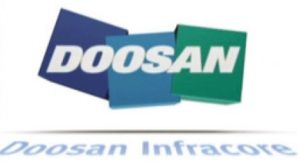
A Globalizing chaebol : Doosan
- Date 2010-05-01 09:05
- CategoryResearch and Education
- Hit1616

CEO and Chairman, of Doosan Corp. Yong-man Park
 On March 25th, the KDI School held a special lecture by Doosan’s CEO and Chairman, Yong-man Park, following an invitation from Operations Management Professor, Yu-Sang Chang. It is interesting to note that years earlier, Yong-man Park had been a teaching assistant for Professor Chang while pursuing his MBA at Boston University.
On March 25th, the KDI School held a special lecture by Doosan’s CEO and Chairman, Yong-man Park, following an invitation from Operations Management Professor, Yu-Sang Chang. It is interesting to note that years earlier, Yong-man Park had been a teaching assistant for Professor Chang while pursuing his MBA at Boston University.
Started by Park’s grandfather in 1986 with a single store in Seoul, Doosan is Korea’s oldest business organization. To be honest, one of the main reasons I attended the lecture I will ashamedly admit, is because I wanted to see a CEO of a Korean chaebol in person. Given their immense power in Korea and increasing global status, chaebol CEOs conjure images of immortal demi- gods, and I half expected Doosan’s CEO Yong-man Park to fly into Lincoln Hall on a cherubic wing. To say that I was somewhat disappointed when he walked out of the elevator (on his feet) and breezily started chatting up some of the students, is an understatement.
Fast forward to the lecture room. After brief welcoming remarks, the Doosan CEO took his place at the podium, and he easily won over the eager audience with his infectious charisma and charm. As the CEO traced Doosan’s history, everyone was hooked; his presentation was precise yet captivating, informative yet witty in the jokes he sporadically infused into his speech. From the onset of his presentation, the CEO made it clear that Doosan was proud of its long 114 year old history and its resilience despite a myriad of difficulties both internal and external. Interestingly, the CEO has a benign view of all these challenges saying that they are what have made Korean corporations in general stronger than they were 20 years ago.

After almost a century of dominating the beer, soft drinks and whiskey market in Korea, things in the 1990s took a drastic turn for the worst, as Doosan found itself blindsided by increasing competition. By 1996, the company’s annual negative cash flow was a crippling 940 billion won out of a mere 3 trillion won in revenues. The company urgently needed to get out of its deep troubles. It is these efforts to salvage the company his grandfather had founded, which set in motion a three pronged restructuring phase that saw Doosan jettison its consumer goods core market and become one of the world’s leading industrial and construction equipment companies. The third phase of restructuring: globalization through M&A which began in 2006 and is still ongoing includes acquisition of the boiler engineering company Mitsui Babcock UK (renamed Doosan Babcock) and Kvaerner IMGB, the largest casting and forging company in Romania. In 2007, Doosan acquired a leading construction machinery company, Bobcat USA, the world’s largest supplier of compact construction equipment.
Despite Doosan’s success (it has after all been placed 471st in Fortune 2009 and ranked 4th among the World’s Best 40 Companies 2009 list, released in the latest issue of BusinessWeek in October 2009), CEO Park is nowhere near satisfied. To borrow from his vocabulary, he is “hungry”and his plans for the future testify to his insatiable hunger. By 2020, Doosan plans to be a $100 billion company with 90% of its revenues and operations coming from outside Korea. By then, Doosan also intends to be among the top 200 companies listed in Fortune 200.
CEO Park proudly walks the talk, as he shared with the audience Doosan’s strategy to achieving all this. The strategy includes speeding up through M&A and the 2G strategy which is Growth of people, who CEO Park identifies as the most essential resources of a company, and the Growth of business. CEO Park is quick to highlight Doosan’s focus on people as opposed to a focus merely on product as one of the attributes of the company’s success, and one that definitely differentiates it from many other conglomerates. Doosan aspires to be a truly globally competent company in which the people are the source of global competitiveness. Indeed, looking at how fast and far the company has come in Yong-man Park’s short tenure as CEO and chairman, it’s hard not to believe the vivacious CEO.


By Adelide Kamanthe (2010 MPP/ED, Kenya)
Related News
-
Research and Education1 day ago
Republic of Korea Economic Bulletin, May 2024#KDI #Economic #KDISCHOOL #kdischool #Economic Bulletin #Research
-
Research and Education29 days ago
Republic of Korea Economic Bulletin, April 2024#KDI #Economic #KDISCHOOL #kdischool #Economic Bulletin #Research
-
Research and Education57 days ago
Republic of Korea Economic Bulletin, March 2024#KDI #Economic #KDISCHOOL #kdischool #Economic Bulletin #Research
